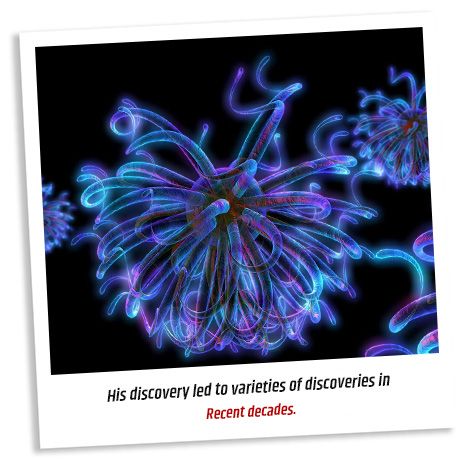Bacteria – A Secret behind the Evolution of Life

It is a fact that there are more bacteria in this planet than the stars in the observable universe. And yet, because of the size of bacteria, it took centuries for discovering it. It is so small that it cannot be observed through our naked eye. Microorganisms are the building blocks of life on this planet. It was first discovered by a Dutchman named Antonie Leeuwenhoek in 1676. A man who is very keen and curious about everything he comes across. Antonie was examining peppers under a microscope. In those days they believed that there were spikes on pepper surface which caused the spicy sensation. The Dutchman was expecting to see some spikes under a microscope, but he couldn't observe anything. He tried to grind the pepper and mix it with some water to observe it again. Still, he couldn’t find the spikes, but to his surprise, he found “little animals swimming”. He referred to it as 'animalcules' which literally means tiny animals.
 Initially, he didn’t know that he discovered a whole new domain of life called micro-organisms; he just referred them as something that is included in the animal kingdom. After this discovery, he began to explore more about these micro-organisms. He is the first to study muscle fibres, blood flow in capillaries and improved the microscope lens technology. Today he is considered as the Father of Microbiology. He didn't have much education or any scientific background, but his curiosity made him a great microbiologist and inspired generations of people in the field of microbiology. His discovery led to varieties of discoveries in recent decades. It included a certain type of aquatic bacteria called cyanobacteria, the oldest and most abundant bacteria in the world.
Initially, he didn’t know that he discovered a whole new domain of life called micro-organisms; he just referred them as something that is included in the animal kingdom. After this discovery, he began to explore more about these micro-organisms. He is the first to study muscle fibres, blood flow in capillaries and improved the microscope lens technology. Today he is considered as the Father of Microbiology. He didn't have much education or any scientific background, but his curiosity made him a great microbiologist and inspired generations of people in the field of microbiology. His discovery led to varieties of discoveries in recent decades. It included a certain type of aquatic bacteria called cyanobacteria, the oldest and most abundant bacteria in the world.
Curiosity is the key
 At some point around 2.4 billion years ago, they are the first living organism to split water with the help of sunlight and use it to prepare their food. Now we call this process "oxygenic photosynthesis." Since then this oxygenic photosynthesis has evolved to every plant on this planet and filled the planet surface with green. It helped plants to release oxygen into our atmosphere and helped to evolve other complex organisms like ourselves. This is the wonder of nature: You need 4.4kWh of energy to split one mole of water, but a single blade of grass does it on daily basis effortlessly. Microbiology is one of the important subjects to get a deep understanding of our planet and study the evolution of life. One man's curiosity (Antonie Leeuwenhoek) has led us to understand how life has evolved on this planet. As the old saying goes, “curiosity is the fundamental factor of all discoveries.”
At some point around 2.4 billion years ago, they are the first living organism to split water with the help of sunlight and use it to prepare their food. Now we call this process "oxygenic photosynthesis." Since then this oxygenic photosynthesis has evolved to every plant on this planet and filled the planet surface with green. It helped plants to release oxygen into our atmosphere and helped to evolve other complex organisms like ourselves. This is the wonder of nature: You need 4.4kWh of energy to split one mole of water, but a single blade of grass does it on daily basis effortlessly. Microbiology is one of the important subjects to get a deep understanding of our planet and study the evolution of life. One man's curiosity (Antonie Leeuwenhoek) has led us to understand how life has evolved on this planet. As the old saying goes, “curiosity is the fundamental factor of all discoveries.”